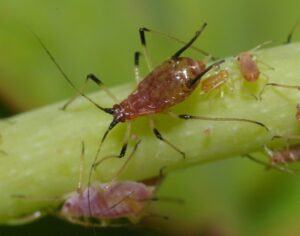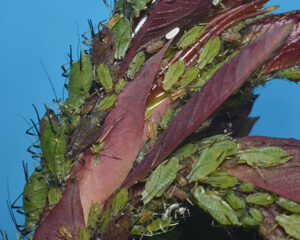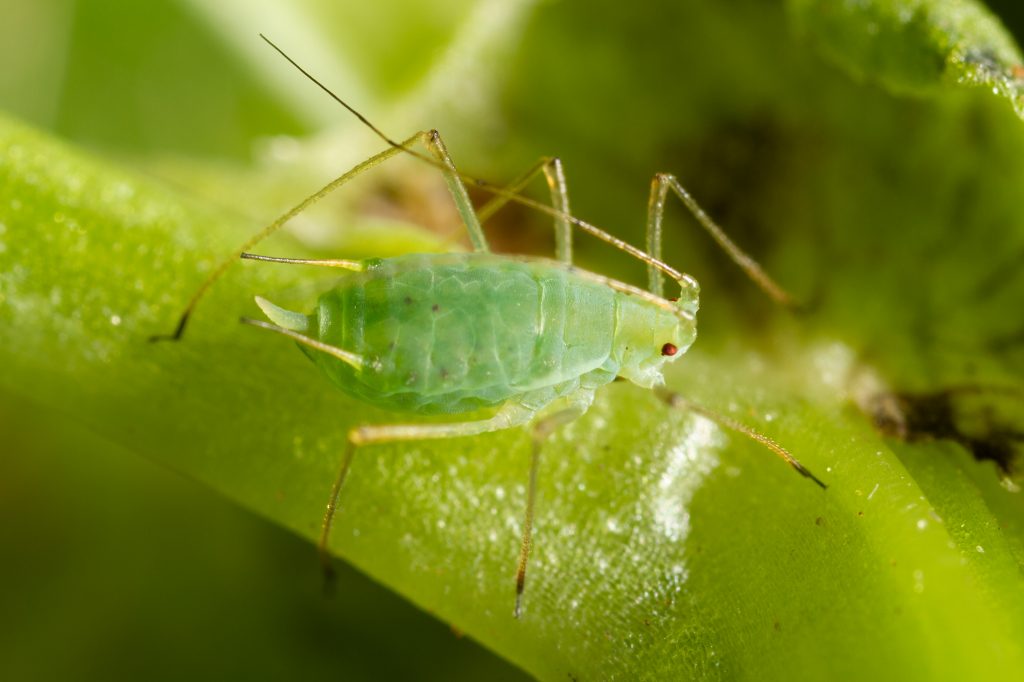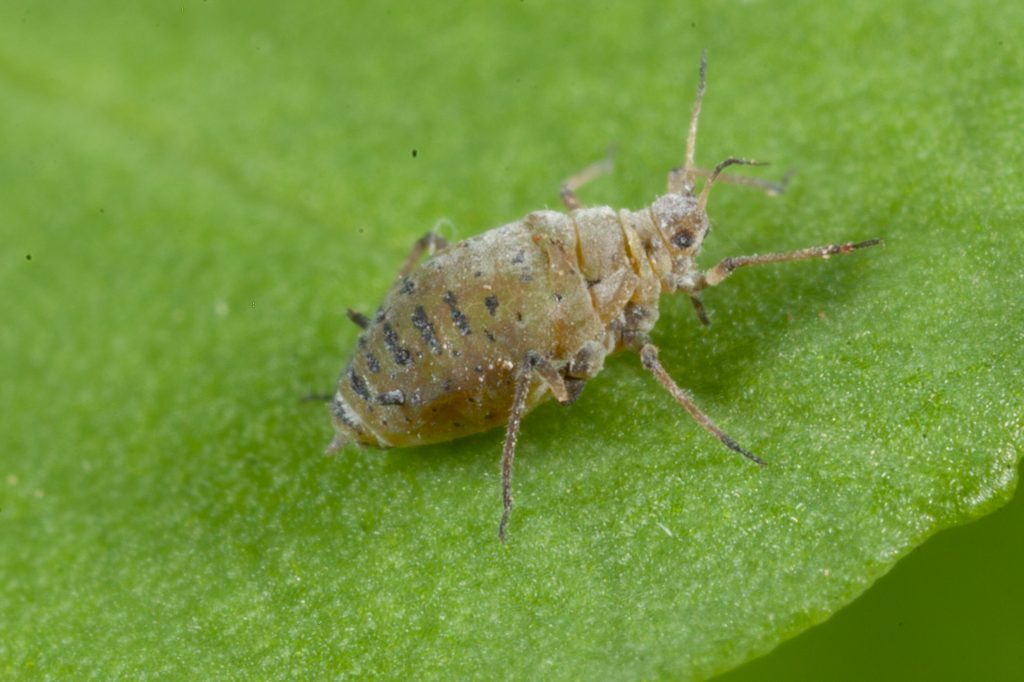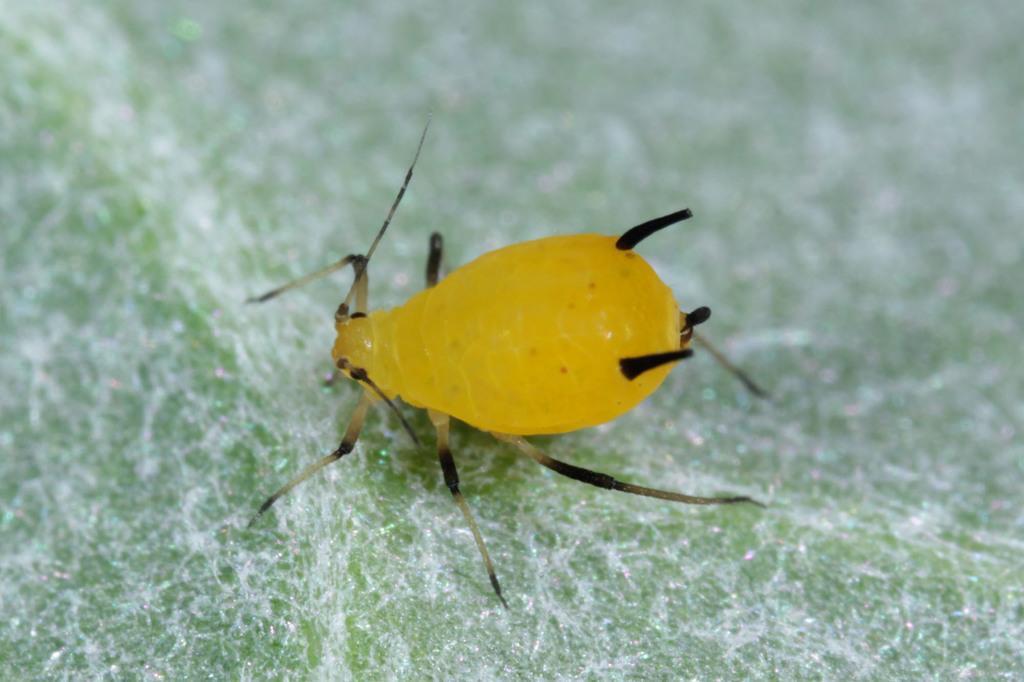Rose Aphid (Macrosiphum rosae)
Updated on
29/11/2022As the name indicates, the rose aphid primarily feeds on rose plants. While some spend their entire life cycle in a single plant, they can quickly spread and cause an infestation.
Scientific Classification
- Class:Insecta
- Order:Hemiptera
- Family:Aphididae
- Genus:Macrosiphum
- Species:M. rosae
Conservation Status
Description
Rose aphids are 0.07 to 0.14 inches long, ranging from green to pink and reddish-brown. Their bodies are long and slender, with relatively long antennae and legs. The winged aphids are a bit larger – 0.09 and 0.13 inches – and have distinct black markings.
Distribution: Global
Habitat: Wherever rosebushes are found
Do they bite: No
Lifespan: 1 month
Predator: Lacewing and ladybird larvae
Behavior and Characteristics
Feeding
Like other aphids, they feed on sap from any part of their host plants, such as leaves, stems, and even roots, in some instances.
Life Cycle
Though wingless females can undergo parthenogenesis, the winged rose aphids produce offspring via sexual reproduction.
1. Egg Stage
The eggs are laid on the canes of the rose plant, where they overwinter and begin to hatch in spring.
2. Nymph Stage
Wingless females develop first in the spring; winged females develop between June and July, while winged adults are born in autumn.
Getting Rid of Them
The rose aphid can damage roses and similar plants by feeding on them and secreting sticky honeydew that causes the development of a sooty mold. Biological removal of these aphids includes introducing ladybird larvae to one’s garden. If they persist even afterward, treatment with insecticidal soaps, horticultural oils, and imidacloprid insecticides should relieve the affected plants.
Source
aphid.aphidnet.org, bladmineerders.nl, bugguide.net, influentialpoints.com, ozanimals.com






